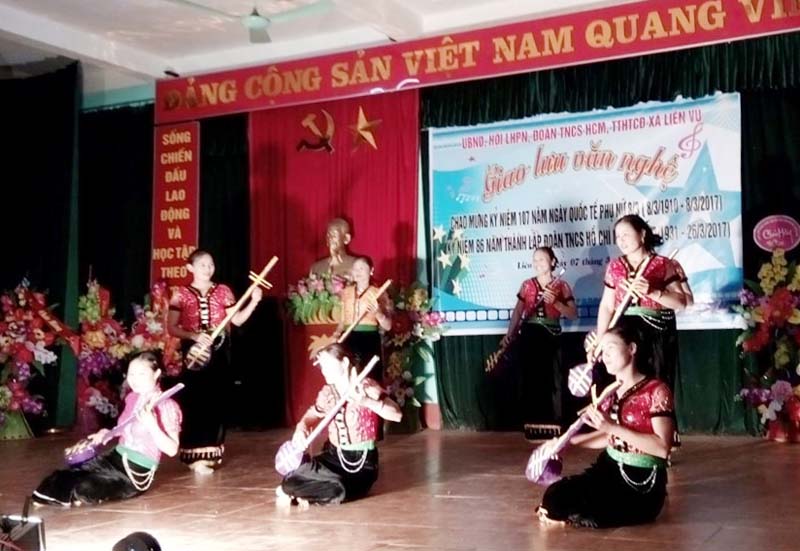



The performance teams of Lien Vu commune (Lac Son) perform to serve the
needs of enjoying the poeple’s spiritual culture.
The performance and the gong teams were also established in a lot of
schools in the district. Each performing
arts team has from fifteen to twenty main people. They have great passion for
singing, dancing and traditional musical instruments. The art clubs and teams
operate in the form of socialization. Activities of mass clubs and teams are
regularly maintained at village and hamlet cultural houses and integrated into
regular meetings of associations and unions. Each club and art team has its own
strengths and most of the performances are traditionally national songs and
dances. Each performance team has been invested with a mandolin and the commune
gave a set of gong to th high and the secondary schools on the occasion of the
opening ceremony of 2018 – 2019 school year for training and performance.
Ms. Bui Thi Nhien, a member of Huong Que Club, Beo Village says that Huong
Que Club was established in 2013, so far, all club members really like singing
and national musical instruments. They have the same desire to preserve and promote
the national cultural identity. A special point creating the vitality of the
movement is the passion and enthusiasm of the amateurs artists and actors for
the preservation of the traditional cultural values and the reception of the
people through performances. Besides the training and performances, the club
members also actively guide and teach folk songs and gong songs to their
children in the neighborhood. Thereby, it not only helps the performance teams
with the opportunity to perform, exchange and learn more experiences but it
also helps them with preservation and promotion of the national cultural
identity.
At the end of May, the Hoa Binh Provincial Ethnic Arts Troupe organized a series of performances for residents in Region 2 and Region 3 communes across the province. Bringing art to ethnic communities in remote, isolated, and especially disadvantaged areas has become a meaningful activity. These are not merely artistic performances but also journeys to disseminate cultural values, enrich spiritual life, and contribute to preserving the cultural identity of ethnic minorities.